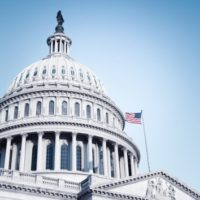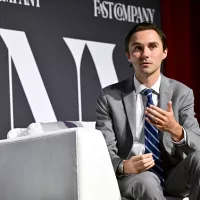
(WASHINGTON) — As the pandemic raged, local political hopefuls across the country were often serving constituents on the frontlines while also guiding their communities through a national reckoning over race relations. In many cases, the personal experiences of those officials were evolving in tandem with what voters and constituents saw in their daily lives.
The need for action to mitigate the dual crises gave several emerging state leaders an opportunity to leverage their personal experiences both on the campaign trail and in the nation’s state houses.
“A lot of folks are now waking up to what I’ve always known — that state government is really important,” Pennsylvania state Rep. Malcolm Kenyatta told ABC News.
Nearly a year ago, at the height of the pandemic, a video of Kenyatta’s floor speech defending low-wage workers went viral. During the speech, the 30-year-old highlighted difficulties those workers faced amid the ongoing health crisis and lack of access to PPE.
“What folks are demanding is that they get to be served, that they get to go to a restaurant and sit down and be served by a service worker who they refuse to pay a $15 minimum wage,” Kenyatta said at the time.
In February, the Pennsylvania state representative announced his candidacy for the state’s open 2022 U.S. Senate seat. In what appeared to be a nod to ongoing developments with the pandemic, his first campaign video included snapshots of a diverse array of masked individuals engaging in their communities.
As the pandemic progressed, Kenyatta often found himself working with constituents facing economic insecurities, and some constituents would even come to his office for help regarding their stimulus checks. He says those interactions reminded him of “how consequential and how important it is to have good people in office, at every single level.”
“For me it’s all about having people in office that understand the firsthand challenges that folks are up against,” Kenyatta told ABC News.
According to Amanda Litman — the founder of the progressive political recruitment organization, Run For Something, which recently marked its 500th candidate victory — the pandemic exposed how many of the functions of local government directly impact constituents.
“It became so important [during the pandemic], who was in charge locally — you could have a different experience depending on where you were, and everything from restaurants being open or closed, to schools being open or closed, to how your city services were functioning, could you go get a marriage license…that kind of thing. It all came to the intersection of local government,” Litman said.
Sara Le Brusq, the interim president of New American Leaders — which focuses on training first and second-generation Americans seeking to run for local political office — says many of the candidates involved with the organization encountered similar pandemic-era hurdles as voters, which helped build connections through shared “lived experiences.”
According to Le Brusq, many of the elected officials who ran for office during the pandemic were mobilizing their campaigns while also working full-time jobs in professions that were directly affected by the dual impacts of the health and social justice crises.
Dr. Michelle Au, an anesthesiologist, won her state Senate seat in the Atlanta suburbs while also working on the frontlines with COVID-19 patients. On the campaign trail, Au leaned into her expertise in the medical profession by centering her platform around the goal of moving Georgia “towards a healthier future,” while also arguing against what she called the “false choice” of choosing “between public health and rebuilding [the] economy.”
In addition to being on the frontlines of the pandemic in the medical field, Au — the state’s first East Asian state senator — was also faced with the nation’s reckoning over Asian American discrimination that escalated over the course of the last year. As an elected official, Au put a spotlight on the difficult experiences unfolding across Asian American and Pacific Islander communities in a floor speech, calling it “a new chapter in a very old story” of discrimination. Since then, Au has been working to build support for greater political representation in the AAPI community.
In Arizona, a similar overlap between the pandemic and social justice helped state representative and paramedic Melody Hernandez win her seat. Throughout the campaign, Hernandez cited the issues raised during the pandemic to reinforce her progressive platform and often documented her reflections on the toll the pandemic was taking on her community. After being elected, Hernandez continued to build on her lived pandemic experiences by introducing legislation that offered protections for front-line workers including hazard pay, COVID-related sick leave and quarantine accommodations.
Organizers like Le Brusq hope the kinds of connections local lawmakers built with constituents over the course of the last election cycle help springboard into upcoming contests that are likely to begin taking shape as early as this year.
“We’re going to work harder than ever to elect new Americans and people of color, and make sure that our representation reflects the richness and diversity of our country,” she said.
With more local elections on the horizon, Litman appears to be echoing that sentiment.
“There’s an expression, further down the ballot, the closer to your door,” she said, adding, “These things that we think of as big national, sticking problems often can be solved — at least policy-wise — on a small scale.”
Copyright © 2021, ABC Audio. All rights reserved.














